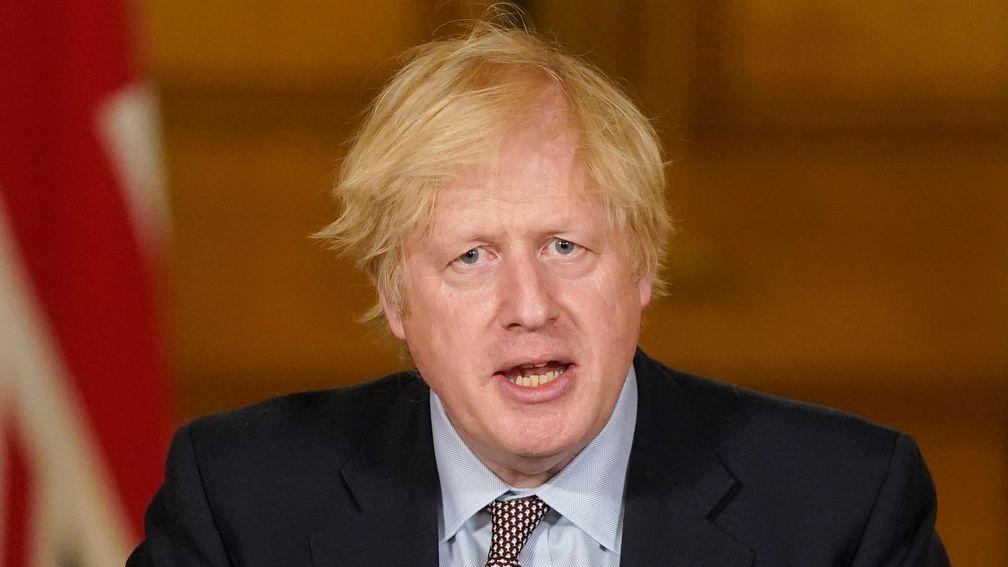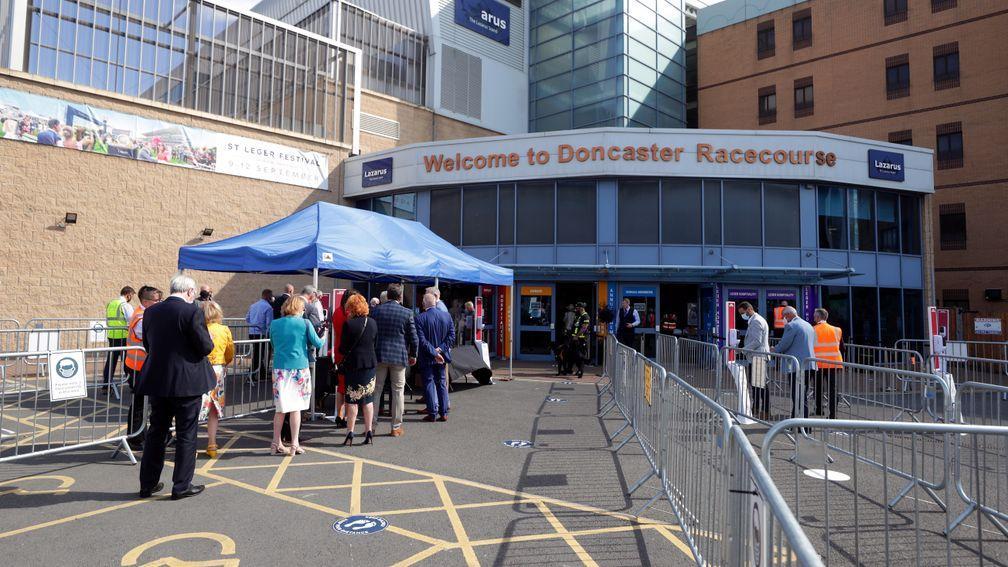- More
Reports of effective Covid vaccine raise hopes for return of racegoers

The Racecourse Association (RCA) has welcomed the "optimism" of reports suggesting the first effective coronavirus vaccine can prevent more than 90 per cent of people from getting Covid-19, with the positive news offering hope crowds could return to racecourses at the "earliest safe opportunity".
The return of crowds is considered key to restoring racing's battered finances, which have taken an estimated £250-300 million hit in Britain this year.
A vaccine – alongside better treatments – is widely seen as the best route out of the mass restrictions Covid-19 has imposed on society, with roughly a dozen in the final stages of testing, and the preliminary analysis of the first vaccine to show any results, developed by Pfizer and BioNTech, has been warmly welcomed by scientists, with some suggesting life could be back to normal by spring.
Prime minister Boris Johnson also cautiously welcomed the development and said a "significant hurdle" had been cleared, but warned "these are very, very early days".
Johnson said on Monday: "We’ve cleared one significant hurdle but there are several more to go before we know the vaccine can be used.
"I must stress these are very, very early days. We absolutely cannot rely on this news as a solution, and the biggest mistake we could make now is to slacken our resolve at a critical moment.”
The vaccine update offered a glimmer of hope the return of spectators at racecourses could be edging nearer in what would be a much needed boost for struggling tracks and racing as a whole.
Paul Swain, brand and experience manager of the RCA, said: "The RCA welcomes the optimism of the report that a vaccine for Covid-19 has a 90 per cent prevention rate.
"While this is unlikely to be available to the public at large immediately, such positive news gives hope that real progress is being made in the fight against the virus and that this will materialise in the lifting of certain restrictions, enabling us to welcome back spectators at the earliest safe opportunity.”
Racing in Britain went behind closed doors on March 16, three days after the same decision in Ireland and days before the sport was halted in its entirety until June 1 (June 8 in Ireland), and has remained behind closed doors since its resumption for all bar two limited pilot events at Doncaster and Warwick in September.

The Department for Digital, Media, Culture and Sport suspended the trials of limited crowds in Britain that same month and Johnson warned on September 23 that measures restricting attendance to sporting events could be in place for the next six months, adding to growing fears for racecourses deprived of a significant source of income.
Since that statement the Covid-19 crisis in England has deepened, with a second lockdown implemented last Thursday and set to remain in place until December 2.
A firebreak lockdown had also been in place in Wales since October 23 but was lifted on Monday allowing betting shops in the country to reopen, while a six-week lockdown began in Ireland at midnight on October 21.
Scotland remains under a five-level alert system which is set to be reviewed on Tuesday, although first minister Nicola Sturgeon has said the country's Covid-19 restrictions are "highly unlikely" to be eased in the review.
The Betting and Gaming Council (BGC) welcomed the decision to allow the 366 betting shops in Wales, which employ an estimated 2,000 people, to reopen and has called on the government to allow England's 5,681 betting shops to follow suit when its nationwide lockdown ends.
Michael Dugher, chief executive of the BGC, said: "The decision to reopen betting shops and casinos across Wales is hugely welcome.
"It demonstrates the confidence of the Welsh government in the safety measures they have in place. It means 2,000 staff can get back to work and our members can get back to serving their customers.
"We're urging the government to also recognise the lengths to which betting shops and casinos have gone to make sure they are Covid-secure and, when the English lockdown ends, allow them to safely reopen from day one."
Betting shops closed on March 20 and reopened their doors from June 15 under a range of strict social distancing and protective measures, including limitations on the number of customers allowed in each establishment.
Ultimate Daily - our daily newsletters from Racing Post's experts, exclusive to the inbox of Ultimate Members' Club subscribers. To receive the newsletter subscribe at racingpost.com/members-club
Published on inNews
Last updated
- Join Racing Post Members' Club for the very best in racing journalism - including Patrick Mullins' unmissable trip to see Gordon Elliott
- Join the same team as Ryan Moore, Harry Cobden and other top jockeys with 50% off Racing Post Members' Club
- Racing Post Members' Club: 50% off your first three months
- 'It’s really exciting we can connect Wentworth's story to Stubbs' - last chance to catch master painter's homecoming
- The jumps season is getting into full swing - and now is the perfect time to join Racing Post Members' Club with 50% off
- Join Racing Post Members' Club for the very best in racing journalism - including Patrick Mullins' unmissable trip to see Gordon Elliott
- Join the same team as Ryan Moore, Harry Cobden and other top jockeys with 50% off Racing Post Members' Club
- Racing Post Members' Club: 50% off your first three months
- 'It’s really exciting we can connect Wentworth's story to Stubbs' - last chance to catch master painter's homecoming
- The jumps season is getting into full swing - and now is the perfect time to join Racing Post Members' Club with 50% off